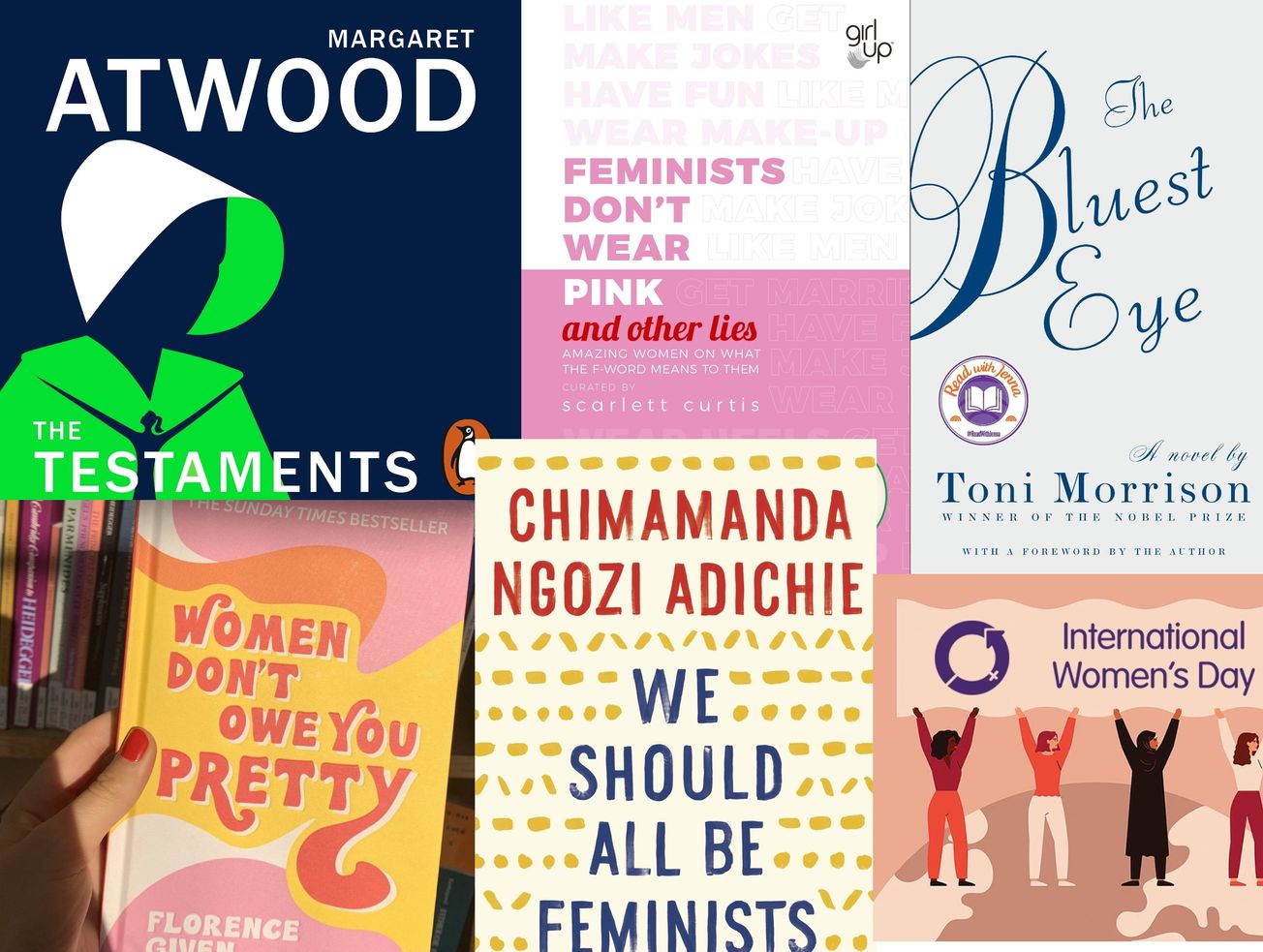By Marine Saint, First Year English and History
In honour of International Women’s Day, this month’s bookshelf celebrates some of the best feminist non-fiction books and novels to empower readers and discover new voices. From personal essays reflecting on sexism, misogyny and girlhood to novels bringing to life the power of female solidarity, this selection offers new favourites as well as classic works of fiction to delve into during women’s history month.
Women Don’t Owe You Pretty - Florence Given
Recent Sunday Times bestseller, Florence Given’s candid and highly engaging book explores gender bias, relationships, and internalised misogyny. Given’s book has inspired eye-opening and insightful discussions about femininity and is a truly enlightening read. It is no surprise that it has taken online reading communities by storm, allowing readers to reconsider how gender attitudes intrinsically influence our daily lives.
Who's going to @WOWisGlobal? 🙋♀
— Women's Prize (@WomensPrize) February 25, 2021
From March 1st #WOWUK are running three weeks of online talks and workshops supporting women and girls, including Women in Greek Myths with @officialnhaynes and @bettanyhughes. We're there!
👉 https://t.co/V67xVHpRzU pic.twitter.com/eQGqqwnGgp
Feminists Don’t Wear Pink (and other lies) – Scarlett Curtis
For those who enjoyed Given’s debut book, Scarlett Curtis’ anthology of essays by female activists of differing ages, ethnicities and sexualities is the ideal follow-on. Curtis opens the book with a mini memoir of her own feminist journey, stemming from childhood sexism to noticing inequality in her adult life. Featuring essays from public figures such as Emma Watson, Dolly Alderton and Trisha Shetty, this collection delves on the personal experiences of celebrated women with feminism and the engrained gender equality stigmas in society.
8 March is #InternationalWomensDay!
— UN Women (@UN_Women) March 5, 2021
Time to join the activists, leaders, innovators and change-makers working every day to build an equal future.
Time to join #GenerationEquality and be part of the change. #IWD2021 https://t.co/qvCqbVeLnq
We Should All Be Feminists - Chimamanda Ngozi Adichie
Chimamanda Ngozi Adichie’s essay length book was a hit manifesto for feminists upon its first publication in 2014 and merits a place amongst the great non-fiction works on gender equality. Expanding on her 2013 TedxEUSTON talk of the same name, Adichie’s powerful essay reflects on her definition of feminism, the practical implications of perpetuating patriarchal values for women and her gender-biased experiences growing up in Nigeria. A truly impactful, concise read that everyone should visit during this year’s women’s history month.
i read We Should All Be Feminists by Chimamanda Ngozi Adichie last week and i cant stop thinking about it so here’s some of my favorite passages, enjoy! go read it. please. pic.twitter.com/JCciYHNVVc
— Alyssa Buren (@alyssaburen11) February 16, 2021
The Bluest Eye – Toni Morrison
Toni Morrison’s debut may have been first published in 1970 but remains a seminal piece of feminist fiction. Following the childhood of the main protagonist Pecola Breedlove in Ohio, Morrison’s novel is an incredibly moving and poignant portrayal of racial injustice in America, sisterhood, and lost innocence. For those who enjoyed Morrison’s Beloved, her most famous and Pulitzer Prize winning novel, The Bluest Eye, is a must-read to understand the realities of African American life in post-Depression America.
February bookshelf: Revered romantic reads for Valentines Day
From 'The Secret History’ to ‘Normal People’ - how is university represented in literature?
The Testaments – Margaret Atwood
The sequel to her world-renowned novel The Handmaid’s Tale, Margaret Atwood’s most recent novel was awarded joint Booker prize for 2019, alongside the equally brilliant Girl, Woman, Other by Bernadine Evaristo. Picking up the story 15 years after Offred’s tale, Atwood returns to Gilead and near-future New England, America, with ominous returning character Aunt Lydia narrating alongside new teenage protagonists Agnes and Daisy navigating the sexism and repression in society. Perfect for fans of Atwood’s other novels, The Testaments is a gripping read which provides some much-needed escapism in uncertain times.
Happy International Women's Day!
Featured Image: Epigram / Marine Saint









